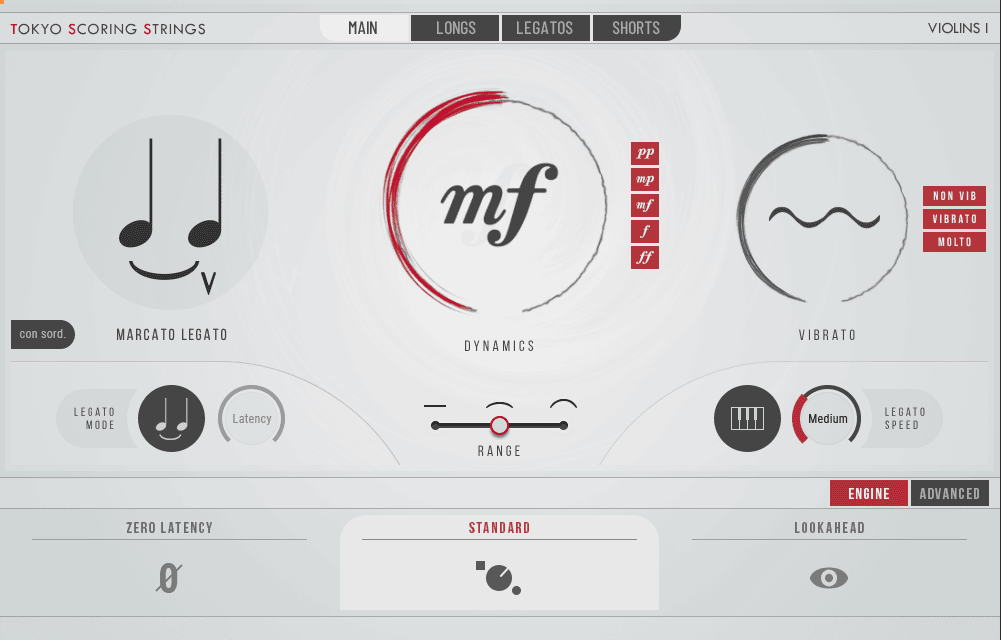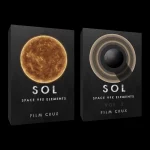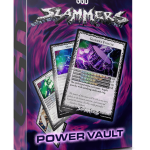Impact Soundworks Tokyo Scoring Strings v2.0.1 KONTAKT Tokyo Scoring Strings combines groundbreaking legato and a brilliant workflow with the perfection and agility of Japan’s world-renowned Koichiro Muroya Strings. A well-rounded studio string library that holds its own across all genres, especially — but not limited to — Japanese-inspired music. Tokyo Scoring Strings is powerful yet user-friendly, allowing you to easily realize virtually any score.
Tokyo Scoring Strings combines groundbreaking legato and a brilliant workflow with the perfection and agility of Japan’s world-renowned Koichiro Muroya Strings. A well-rounded studio string library that holds its own across all genres, especially — but not limited to — Japanese-inspired music. Tokyo Scoring Strings is powerful yet user-friendly, allowing you to easily realize virtually any score.
Recently rebuilt from the ground up for v2.0, TSS features even more versatile and natural-sounding legato, new articulations, enhanced Lookahead, an ensemble patch, and more.
About the Library
In a crowded field of string libraries, Tokyo Scoring Strings stands out for its unique sound, extraordinary lookahead technology, and remarkably easy-to-use workflow.
In creating Tokyo Scoring Strings, we wanted it to be fun, inspiring, and easy to use, while still powerful enough to create truly realistic, lifelike performances. We’ve gone to great lengths to polish and perfect our legato so that it sounds perfectly natural and real, whether you’re writing expressive or rapid passages.
The Complete version of Tokyo Scoring Strings gives you incredible fine-grained control, as well as extraordinary levels of detail and the ability to mock up an even wider range of performances due to expanded articulations.
World-Class Studio Sound, Endless Mix Possibilities
Choose from the following three mic mixes, or design your own from four individual mic positions.
– Board Mix: An upfront mix by Mitsunori Aizawa, using his hardware setup at Sound City.
– Anima Mix: A light and airy mix most suited to agile and intricate writing.
– Cinema Mix: A dark, smooth mix suitable for cinematic scoring and low string chorales.
Individual mic signals in the Mic Mixer patch:
– Close: A very dry mono signal that can be used for adding more crisp detail.
– Decca: A “Decca tree” mic arrangement using cardioid mic.
– Side: An “outriggers” signal, providing a wider stereo image than the Decca.
– Back: Ribbon mics pointed at the wall, with a darker tone that can be used to bring out warmth.
Note for TSS1.0 users: In Tokyo Scoring Strings 2.0, the Close mic position has been reworked to remove bleed mics, giving it a more close and focused sound. The ‘Surround’ and ‘Room’ positions have been removed in favor of the ‘Side’ and ‘Back’ positions, which provide more contrast.
Lookahead: Revolutionize Your Workflow
Looahead the ideal solution to make programming parts in MIDI as realistic and easy as possible. This engine mode, available with a single click, allows you to work directly on the grid with consistent delay for all articulations and legato speeds, and polyphonic legato that works perfectly with no additional effort on your part.
For the ultimate in realism and saving time, you can even choose the optional Easy Artic mode, which selects articulations polyphonically without needing to use keyswitches.
Spectral Fusion-Powered Legato
The updated and improved Tokyo Scoring Strings 2.0 features stunningly realistic, consistent, and smooth legato created using our in-house developed Spectral Fusion System. Using proprietary DSP software, editing, and programming techniques, all 60,000+ legato samples have been carefully balanced and matched to all combinations of source and destination notes, including the associated recorded dynamics.
Normally, this processing would be impossible to achieve through any manual process due to the sheer number of samples involved. That’s why legato recording, editing, and programming is by far the most time-consuming part of creating realistic sample libraries, and why results often come up short — lumpy transitions, rapidly-changing timbre from source to destination, a “sucking” effect that makes the recording space sound suddenly lifeless, and more.
The unprecedented, library-wide balance from the Spectral Fusion System does not compromise the versatility or range of legato either; Tokyo Scoring Strings includes a total of seven distinct legato and portamento types along with four independent speed profiles which allow stunning and consistent performances at all dynamics and tempos.
Total Articulation Control Technology (TACT)
Writing music is a deeply personal act of creation, and your workflow preferences are just as unique. Our TACT system allows you to personalize how you use Tokyo Scoring Strings to suit how you work best, regardless of which DAW you prefer or whether you use a MIDI controller or not. Do you rely on keyswitches, stick to MIDI CCs, set everything by velocity, or use a combination of all three?
If you can dream up the perfect articulation mapping, you can make it real in Tokyo Scoring Strings.
Articulations & Content
Tokyo Scoring Strings features five independently recorded sections (Violins 1, Violins 2, Viola, Cello, Bass), as well as an Ensemble Patch, in a typical Japanese ensemble size (8/6/4/4/3) suitable for small and large productions alike.
Tokyo Studio Strings includes a well-rounded set of articulations recorded in superb detail. We have paid particular attention to delivering outstanding legato as well as the agility and crisp short notes that are such a strength of smaller Japanese string sections. You’ll be able to easily write and mock-up sweeping melodies, intimate legato, and aggressive agile passages.
Console Modular FX Rack & Mixer
A beautiful new version of our Console modular FX rack and mixer is included with the updated Tokyo Scoring Strings 2.0. Here, you can access over 40 different analog and digitally-modeled effects ranging from EQs, compressors, and limiters, to multiple flavors of reverbs and delays. You can sculpt and shape Tokyo Scoring Strings entirely in Console without using a single external plugin!
Five orchestral string sections & Ensemble patch
8 violins 1, 6 violins 2, 4 violas, 3 cellos, 3 basses, plus a convenient, efficient new Ensemble patch.
Four mic positions in a legendary space
Pristine 24-bit, 48kHz samples (downmixed from 96kHz) captured at Sound City: Close, Decca, Side, and Back.
Choose from 3 hand-sculpted mic mixes or make your own
Choose from Mitsunori Aizawa’s own upfront Board Mix (using his hardware setup at Sound City), our hand-sculpted Anima Mix (a light and airy mix most suited to agile and intricate writing) or Cinema Mix (a dark, smooth mix suitable for cinematic scoring and low string chorales), or build your own with the provided mic signals.
All crucial playing techniques
Sustains, pizzicato, staccato, staccatissimo, spiccato, spiccato secco, tremolo, harmonics, trills (whole-tone, half-tone), long & short decrescendo and sforzando
Expressive dynamics and vibrato
Up to five dynamics per articulation (pp, mp, mf, f, ff) and three vibrato levels (senza, con, molto).
Industry-leading legato
Five distinctive legato types: Legato Bow, Legato Slur, emotional Lyrical Legato, super-agile Runs Legato, and powerful Marcato Legato incorporating adjustable bow noise. Two portamento types: bowed and slurred. 2x round robins for all.
CHANGELOG
Version 2.0.1
– Cellos NKIs now load properly in Kontakt Player (no DEMO mode)
– Violins II NKIs now have correct articulation settings and name in top left corner of the interface
– MIDI CC condition in TACT now works properly
Version 2.0.0
– Full sample set reprocessed for consistency
– Engine completely rebuilt from the ground up
– Added two new mixes: Anima and Cinema
– Added three new legato types: Lyrical, Runs, and Marcato, and overhauled all legato playback
– Mic Mixer now has Close (Mono), Decca, Side, and Back signals
– Added optional purging for dynamic and vibrato layers
– Added optional 300 ms “short” Lookahead mode
NOTE: Please make sure there is 400 GB available free space for the installation of this update!
Homepage:-https://impactsoundworks.com/product/tokyo-scoring-strings/




![Sean Divine Vocal Chains SR v1.8 [UPDATED]](https://www.goaudio.net/wp-content/uploads/2025/10/Divine-Mixing-Vocal-Chains-SR-Updated-Box-Render-150x150.webp)



![Toontrack LATEST MIDI PACK [APRIL 2025]](https://www.goaudio.net/wp-content/uploads/2025/04/Toontrack-LATEST-MIDI-PACK-APRIL-2025-150x150.png?v=1745120673)
![Toontrack LATEST MIDI PACK [MARCH 2025]](https://www.goaudio.net/wp-content/uploads/2025/03/Toontrack-LATEST-MIDI-PACK-MARCH-2025-150x150.png?v=1743055485)

![Toontrack NEW RELEASED MIDI [FEB 2025]](https://www.goaudio.net/wp-content/uploads/2025/02/gandr-collage-3-150x150.jpg?v=1740710859)

![Toontrack LATEST RELEASES MIDI BUNDLE [DEC 2025]](https://www.goaudio.net/wp-content/uploads/2024/12/toontrck-2024-150x150.png?v=1733532112)




![Toontrack Hollowbody EBX [WIN+MAC]](https://www.goaudio.net/wp-content/uploads/2024/09/Toontrack-Hollowbody-EBX-150x150.png?v=1726103695)
![Toontrack LATEST RELEASES MIDI BUNDLE [SEP 2024]](https://www.goaudio.net/wp-content/uploads/2024/09/gandr-collage-11-150x150.jpg?v=1725764744)
![Blockbuster Sound Sand Dune & Mockingbird [BUNDLE]](https://www.goaudio.net/wp-content/uploads/2024/08/blockbuster-sound--150x150.png?v=1724378090)
![Blockbuster Sound Mermaids Sirens & Horror Pack [BUNDLE]](https://www.goaudio.net/wp-content/uploads/2024/08/Blockbuster-Sound-150x150.png?v=1723854097)







![Initial Audio XO – Heat Up 3 Expansion [WIN+MAC]](https://www.goaudio.net/wp-content/uploads/2022/10/XO-–-Heat-Up-3-Expansion--150x150.png?v=1666064730)


